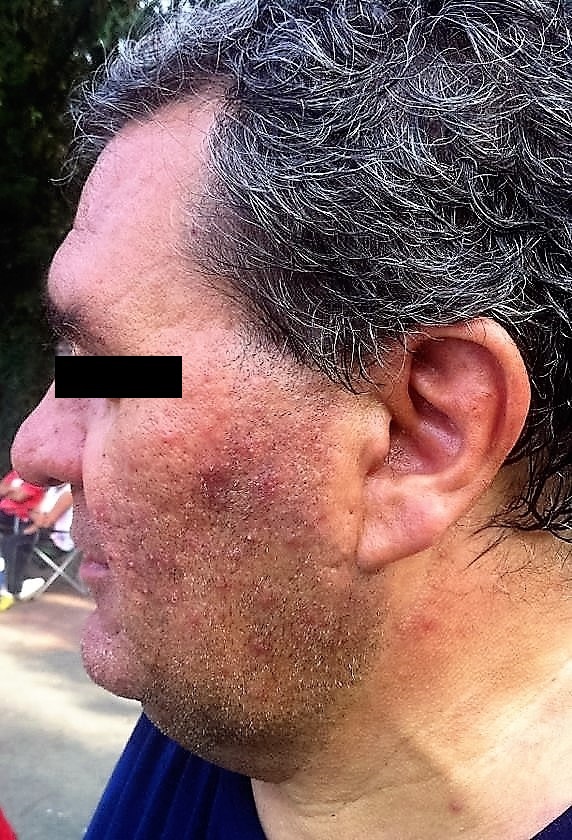There is strong evidence suggesting that rosacea is associated with a wide range of psychological issues, cardiovascular problems, and gastrointestinal disorders, according to a review published in the Journal of the American Academy of Dermatology.
Two Beirut-based researchers, dermatologist Roger Haber, MD, and his colleague Maria El Gemayel, MD, looked at data from 14 controlled studies, 8 cross-sectional studies, and 7 cohort studies that had been published between 1965 and 2017 to determine what possible diseases could be linked to rosacea. According to Dr. Haber and Dr. El Gemayel, “to the best of our knowledge, our study is the first review analyzing available data regarding the diseases associated with rosacea.” Despite the broadness of their analysis, they mention that the data on these associations is limited.
When it comes to psychological conditions, from their analysis, Dr. Haber and Dr. El Gemayel found that rosacea is most commonly associated with depression (n=117,848), anxiety disorder (9,079), migraine (n=6,136), rheumatoid arthritis (n=4,192), and dementia (n=1,194).
The study review also demonstrated links between the skin condition and GI disorders, among them celiac disease; Crohn’s disease; Helicobacter pylori infection, a bacterial infection that affects over half the world’s population (n=1,722); and ulcerative colitis (n=1,424). The researchers recommend that physicians evaluate the risk of GI disorders when diagnosing patients with rosacea.
In terms of cardiovascular disease, many patients with rosacea also struggled with heart-related conditions, including dyslipidemia, a condition where there are unhealthy levels of lipids in the blood (n=7,004); hypertension (n=18,176); diabetes mellitus (n=6,306); peripheral artery disease, and metabolic syndrome.





